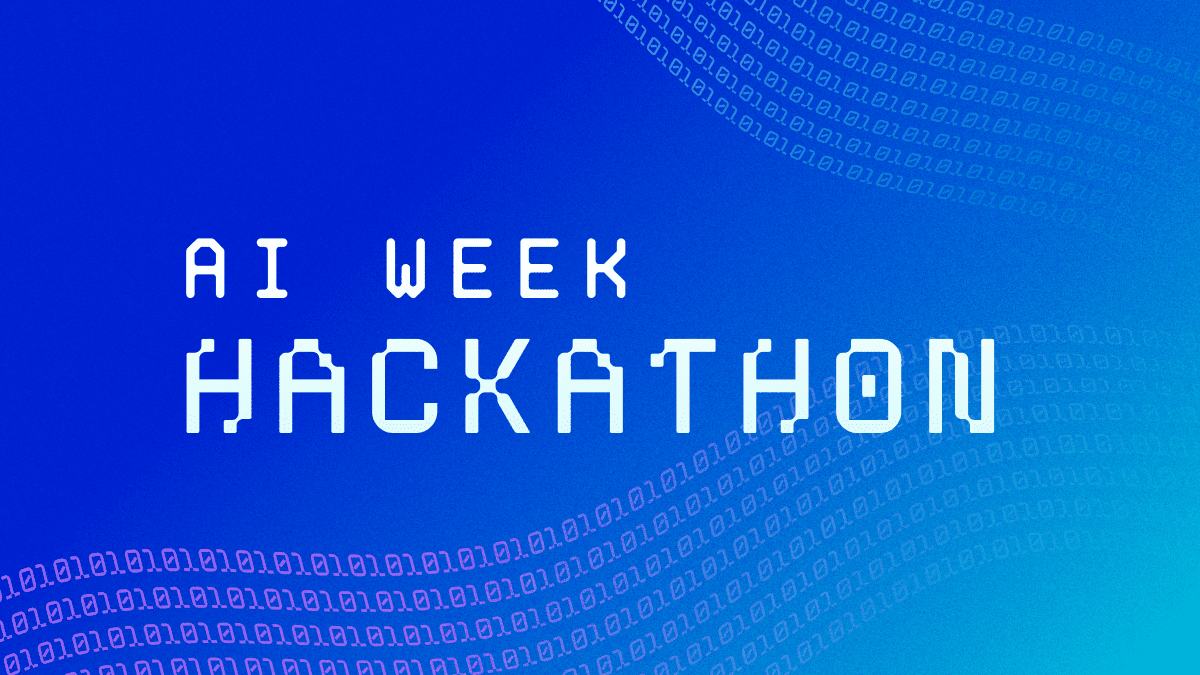On the heels of announcing our OpenAI Integration at the Gartner® Security & Risk Management Summit earlier this month, the LogicGate team came together for AI Week Hackathon last week.
Spanning four days and eight sessions, the event was designed to bring together our team to collaborate, innovate, and create AI-driven solutions for LogicGate and Risk Cloud®.
Sessions ranged from discussing the efficacy and use cases for AI Developer tools to more GRC-specific topics like using AI tools to generate and parse data for Enterprise Risk Management, and even to predict data breaches.
Here’s a summary of all the AI Hackathon Week projects:
Do AI Developer Tools Increase Developer Productivity?
Vice President of Engineering Terry Peppers led a presentation assessing the utility of GitHub Copilot and OpenAI’s ChatGPT, and their benefits and drawbacks for software engineers.
Linked Record Auto-Generation
Senior Software Engineer Brett Bush presented his project on auto-generating records within Risk Cloud by creating a Python script that prompts OpenAI’s API for related risks, threats, or scenarios then directly generates records for each in our platform.
ChatGRC with OpenAI and OpenAPI
Brett also combined OpenAI Functions with our OpenAPI Specification to automate building applications in Risk Cloud from general prompts, resulting in a chatbot he lovingly called “ChatGRC”.
Predicting Data Breaches for Cyber Risk Scenarios
Software Engineer Travis Hamilton leveraged a corpus of data breach statistics to create a Python script that could help Risk Cloud users generate realistic inputs for their FAIR models to quantify cyber risk.
Document Droid
Liliana Sanchez, Evan Peterson, and Anthony Matar of LogicGate’s Information Security team used AI tools to create a chatbot that could respond to prompts concerning specific PDF documents fed to it.
AI Generated Data for ERM
Chief Product Officer Jon Siegler created a process using prompt engineering and the Zapier chatbot to give users the ability to pre-populate contextual data within Risk Cloud application templates.
Framework Recommendations
Software Engineer Suzy Trowbridge researched how AI recommendation systems can be used to recommend industry security frameworks to customers based on their internal controls descriptions.
Application Summary Generation
Senior Product Manager Jacob McReynolds used the OpenAI API to automatically generate summaries of Risk Cloud applications and give end-users an overview of the use case along with the steps involved in each workflow.
The week capped off with a presentation to LogicGate’s Customer Advisory Board to dig deeper on the use cases of AI in GRC, and specifically Risk Cloud.
During that discussion, LogicGate’s Associate Manager of GRC Content & Strategy Pauline Blatt conducted a live demo of Risk Cloud’s policy generation capabilities using the OpenAI Integration.
The LogicGate team also shared some valuable insights into how Risk Cloud users are adopting AI in their GRC processes. Some highlights include:
- 59% have (or are) adopting AI internally.
- 64% say AI can improve GRC efficiency.
- 86% support AI innovation in Risk Cloud.
The discussion also touched on skepticism around privacy, data management, and outputs of existing AI tools, and uncertainty about where it’s going next, which are important concerns for our team to consider as we evolve Risk Cloud.
One of LogicGate’s core values is to embrace curiosity, and AI Hackathon was all about exploration.
It highlighted not only the innovation and brilliance of our team, but also gave us – and our customers – a venue for a nuanced discussion around these tools, and their effect on our industry.

